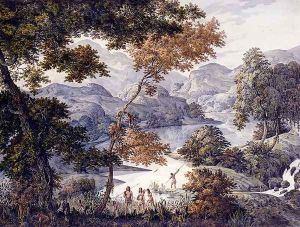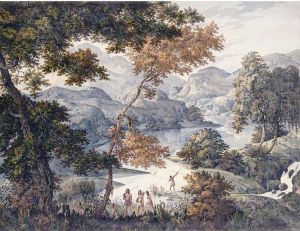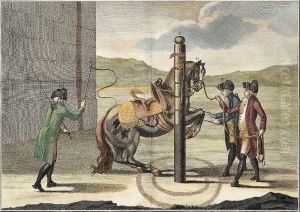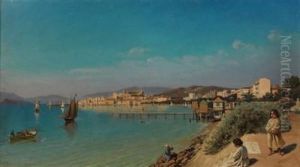Manuel De Araujo Porto-Alegre Paintings
Manuel de Araújo Porto-Alegre, Baron of Santo Ângelo, was a prominent Brazilian Romantic writer, painter, architect, and diplomat, born on November 29, 1806, in Rio Pardo, Rio Grande do Sul, Brazil. Trained initially in his native Brazil, Porto-Alegre later traveled to Europe, where he furthered his education in the arts, particularly in France and Italy, which was quite common for artists of his time.
In the early 1830s, Porto-Alegre began his career as an artist and teacher at the Imperial Academy of Fine Arts in Rio de Janeiro, where he eventually became a director. His role at the Academy was significant, as he was involved in the training of a new generation of artists and also advocated for modernization within the institution. During this time, he contributed to the development of the arts in Brazil, not only through his paintings but also through his efforts in education and his writings on artistic theory and practice.
Porto-Alegre’s work as an architect includes designs for public works and buildings in the neoclassical style, which was prevalent in Brazil during the 19th century. He was involved in urban planning projects and the beautification of Rio de Janeiro, which was the capital of the Empire of Brazil at the time.
As a painter, Porto-Alegre created works that depicted historical, mythological, and religious themes, often with a romantic flair that was characteristic of the period. His paintings contributed to the establishment of a national identity and the romantic movement in Brazil.
Apart from his contributions to the visual arts, Porto-Alegre was also a notable writer and poet. He was a key figure in the Brazilian Romantic literary movement, contributing essays, poems, and plays that were influential in shaping Brazilian literature.
In addition to his artistic and literary pursuits, Manuel de Araújo Porto-Alegre served as a diplomat for the Brazilian Empire. He was appointed as a consul in Germany and later in Portugal, where he was instrumental in fostering cultural exchanges between Brazil and Europe.
Porto-Alegre was ennobled by Emperor Pedro II, receiving the title of Baron of Santo Ângelo in 1874. He died on December 29, 1879, in Lisbon, Portugal. His legacy is remembered for its significant impact on the cultural and artistic developments of 19th-century Brazil.



